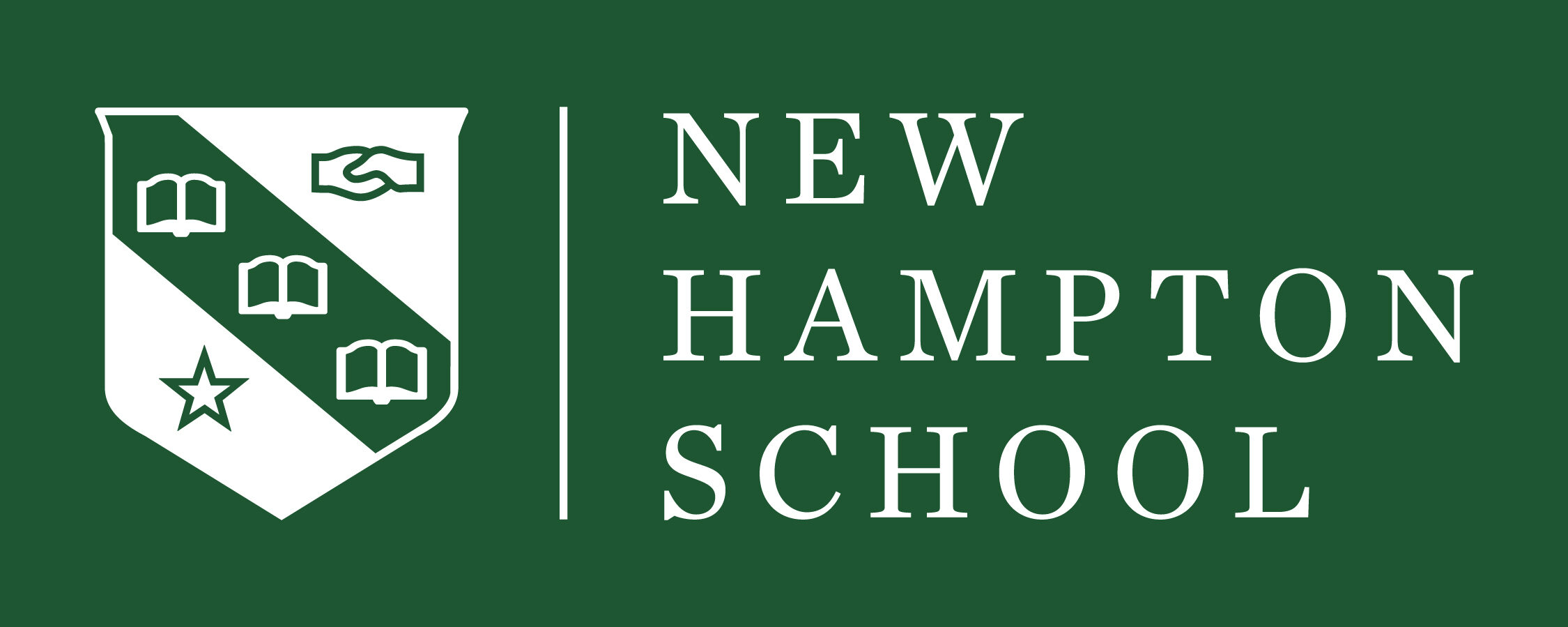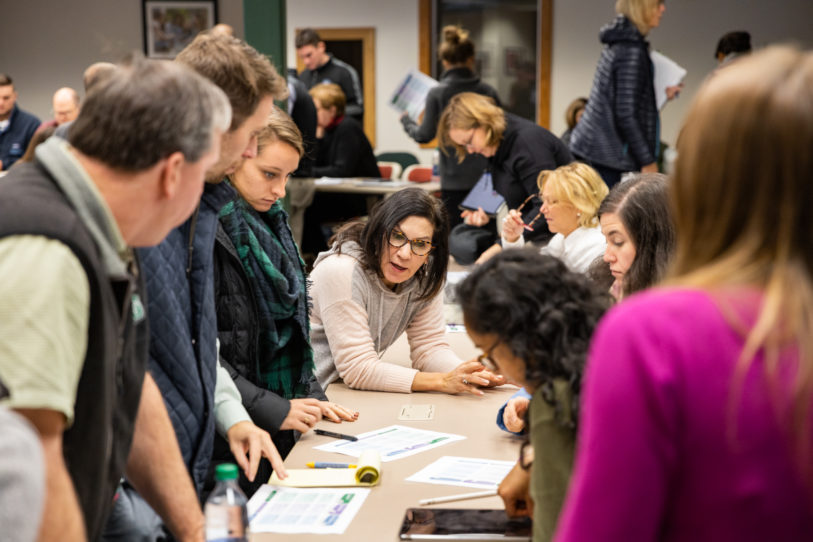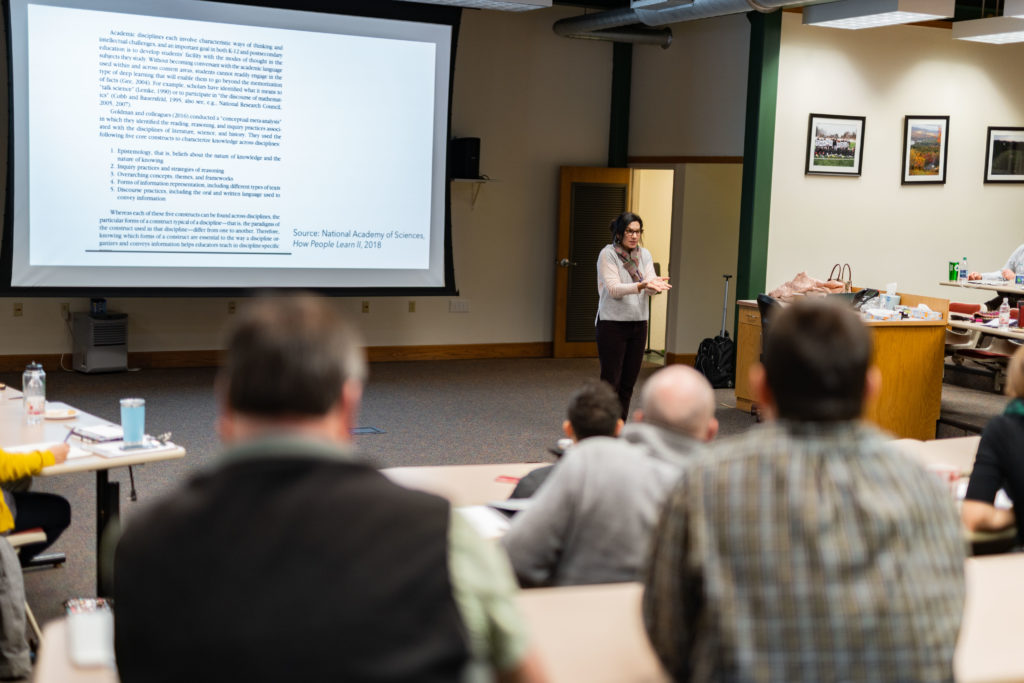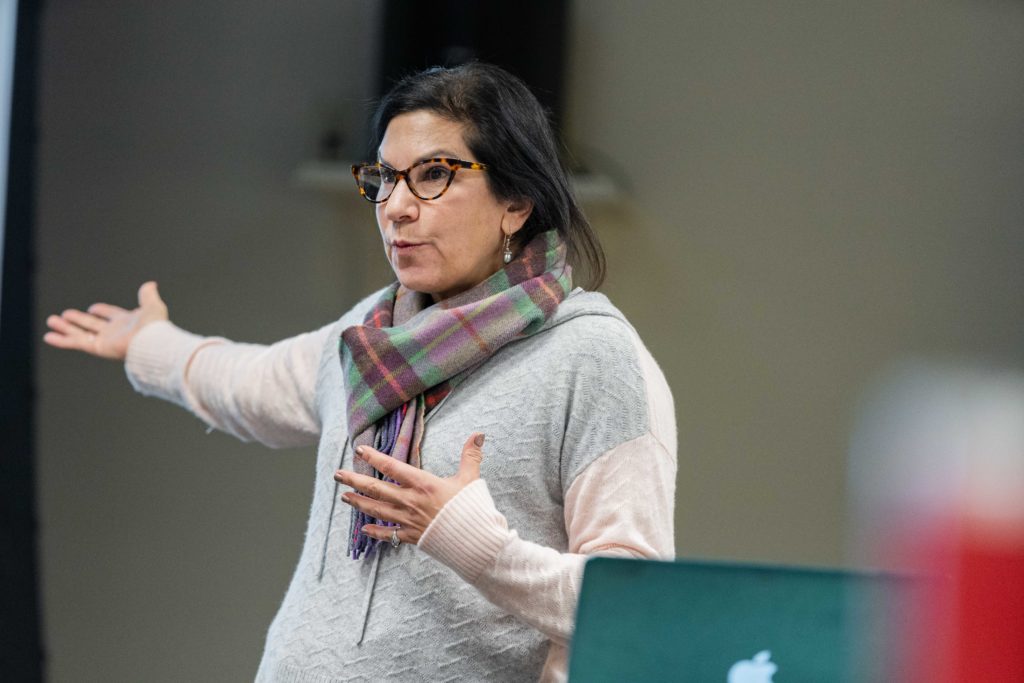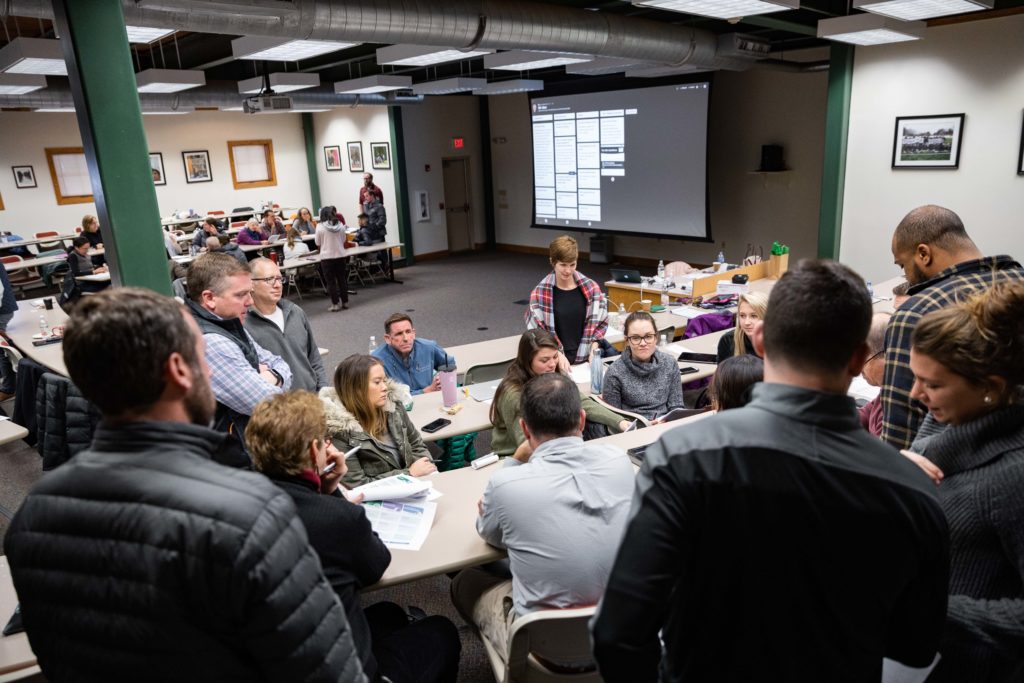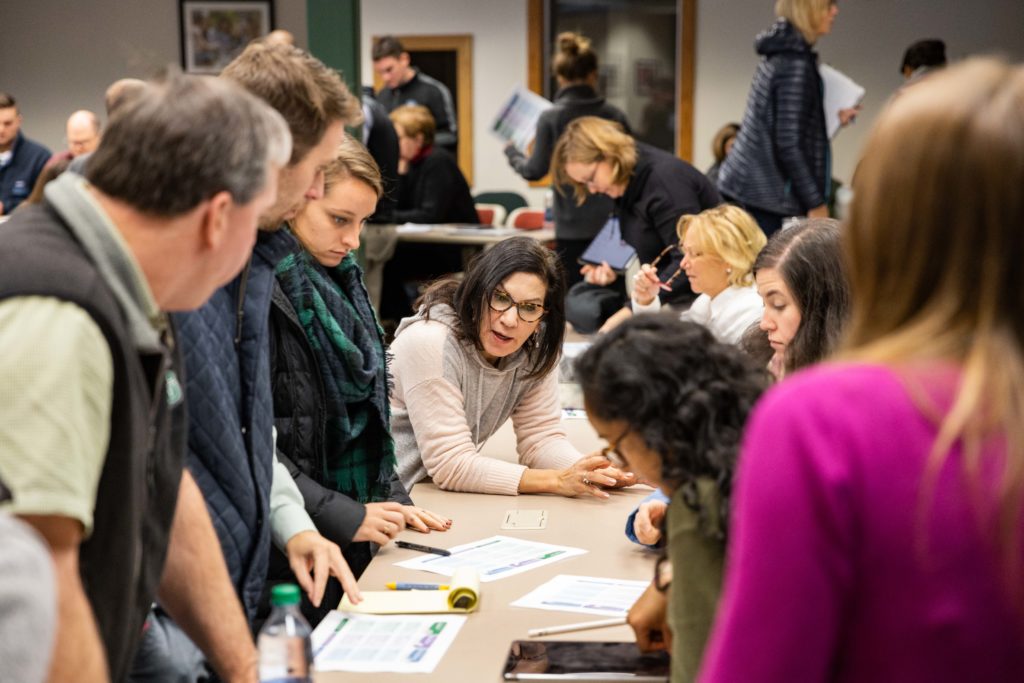Are you a visual learner or a hands-on learner? Does math come easy to you, but you find it hard to explain? Do you excel at verbal communication, yet believe you are a slow reader? Today’s learning and educational landscapes face an increasingly diverse population. Combined with advances in research, the opportunity lies ahead of us to map out a new path to individualized learning and classroom profiles to benefit teenagers from high school through college and, ultimately, their careers and adulthood.
Learning the strengths-based model
Faculty members engaged in a professional development session this week with Nicole Ofiesh of the Potentia Institute, also a New Hampton School alumni parent, on current research and possibilities surrounding this concept of individual and classroom profiles. The institute focuses on a strengths-based model of evaluations, with a three-pronged goal.
- First, to design engaging technology for individuals to understand their brains to personalize choice and decision making.
- Second, to build on research from social, cognitive, and behavioral sciences on how people learn, struggle, and thrive.
- And, third, to promote practices that ensure all adults thrive at home, school, and work responsive to context and diversity.
The research behind the method is complex, pulling together educational sciences from all areas into one place to provide both a broad and individualized view of learners.
Inside the survey
From surveys developed by the institute, students are provided with immediate feedback to understand their brain as well as tools to grow their strengths. The survey works through strategic categories of self-reflective evaluation in areas such as how they read, write, explore their world, manage time, and many more. As a result of the extensive survey, individuals are able to better understand themselves and how to grow their strengths. Gaining this knowledge as a young adult will enable them to implement neuroscience backed strategies for continued growth throughout their education and personal life.
From a teaching perspective, this means many things in terms of possibilities. Taking into account that there is no average student, we know that there is then no singular teaching style that will fit all students. This modular-style survey on the classroom level will help to bridge that gap by providing anonymous detail of a full class with their strengths and areas that need focused growth. Ofiesh stresses that this does not change the curriculum and how this is not a learning style survey to categorize students; teachers will maintain their classroom goals and assignments. The profile does, however, continue to emphasize a need to create space for students to use their best strengths to meet the needs of an assignment. Thereby, when we design the classroom curriculum for a variation in strengths, the benefits of the learning experience increases.
Focused discussion time
All faculty attended this session prior to the students’ return to campus to allow time to learn, collaborate, and discuss this initiative. Ofiesh presented in two sections. First, the broad view of the program, including some history on her research. Second, small group discussions assisted in a deeper dive into the material and methods, allowing for many questions and ideas, while also assessing ties to our current methodology and goals.
In an era where distraction is affecting not only students but an entire workforce, the benefits of self-knowledge highly compliment the ongoing practice of mindfulness, mental health, and well-being for all of our students and community members. New Hampton School is excited for the continued partnership with Nicole Ofiesh to implement these strategies and learn more about the practical applications of new frontier tools in education during the semester ahead.
About Nicole Ofiesh
Nicole Ofiesh, Ph. D. is a cognitive behavioral scientist with expertise in learning disorders and learning differences with over 30 years of experience in teaching, consulting, and research. She intersects this knowledge with an understanding of context and culture to research and teach how people learn. Currently, she is the Executive Director of the Schwab Learning Center at Stanford University, and she is a New Hampton School alumni parent.
